6 Ways to Pest-Proof Your Grass, According to Landscaping Experts

Everyone dreams of a bright green lawn with stunning flower beds and well-shaped shrubs. However, achieving it takes hard work, and there are many challenges to contend with, from time restraints (let’s face it: mowing takes hours) to weather to weeds and more. But one of the biggest, well, pests is pests themselves. Whether your issue is bugs, like mosquitos and ants, animals, like moles and mice, or even snakes, these nuisances can overtake a garden and ruin the way it looks. Fortunately, there are ways to keep them at bay. Here, landscaping experts share the best ways to pest-proof your grass for good.
READ THIS NEXT: 8 Easy Outdoor Plants That Don’t Need Sunlight.
How to Pest-Proof Your Grass
1. Keep it this specific length.

Banishing pests requires keeping your grass in tip-top shape, which includes maintaining its length.
“My favorite way to pest-proof a lawn is to make sure that you’re regularly mowing the grass at the right height for your specific grass species,” says Ryan Farley, CEO of LawnStarter. “Different types of grass have different recommended mowing heights.”
Mowing your grass too short can weaken it and create bare patches that are more prone to pests. Allowing it to grow too long can create a damp environment that’s attractive to insects like mosquitoes and ticks, Farley explains.
If you don’t already know the type of grass you have, you can narrow it down by your location and your lawn’s appearance.
2. Maintain healthy soil.
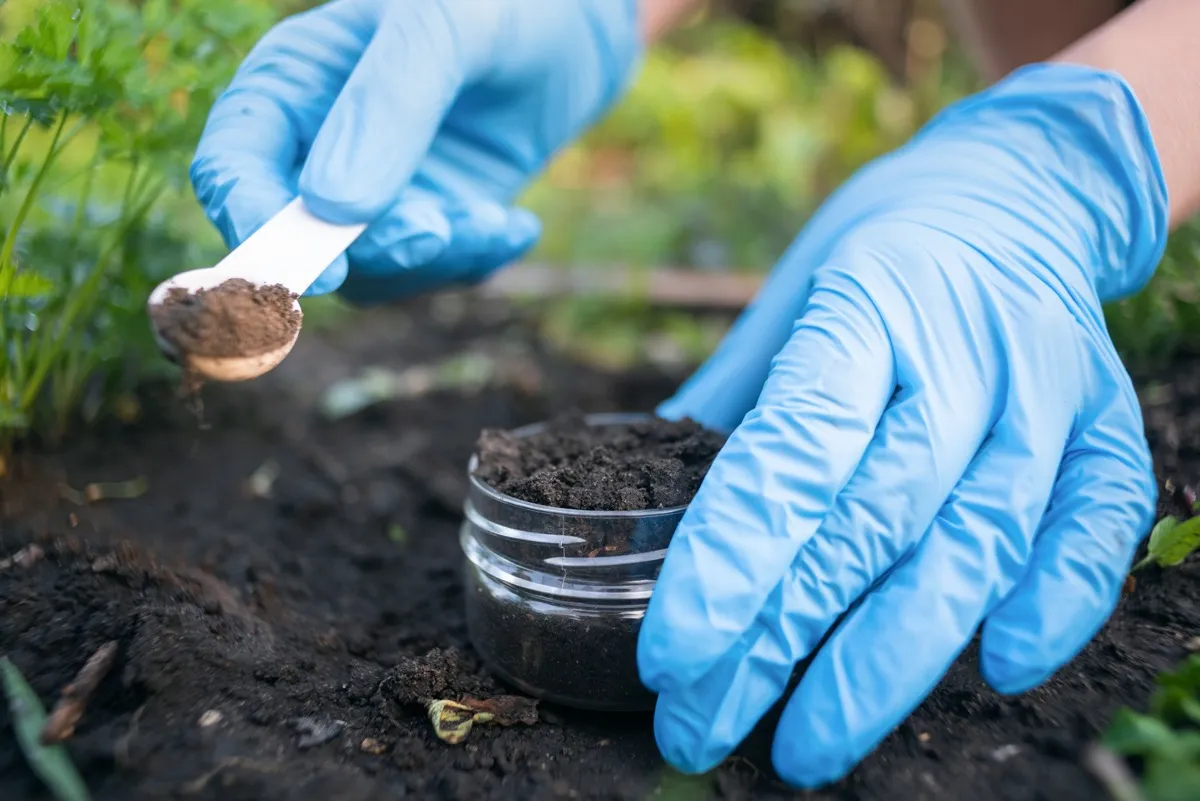
Next, you’ll want to consider your soil health.
“Soil is the foundation of any lawn, and it affects the growth and resilience of the grass and plants,” says Bryan Clayton, CEO and co-founder of GreenPal. “Healthy soil will provide nutrients, water, and oxygen to the roots and also support beneficial microorganisms that can help fight off pests and diseases.”
Achieving top-tier soil requires having the right pH level, texture, and organic matter content to suit your grass.
“You can test your soil with a kit or a probe and amend it with organic fertilizers, compost, lime, or sulfur as needed,” says Clayton. Do this around once every three years for the best results.
READ THIS NEXT: This Is the One Weed You Should Never Pull, Experts Say.
3. Adopt an appropriate watering schedule.
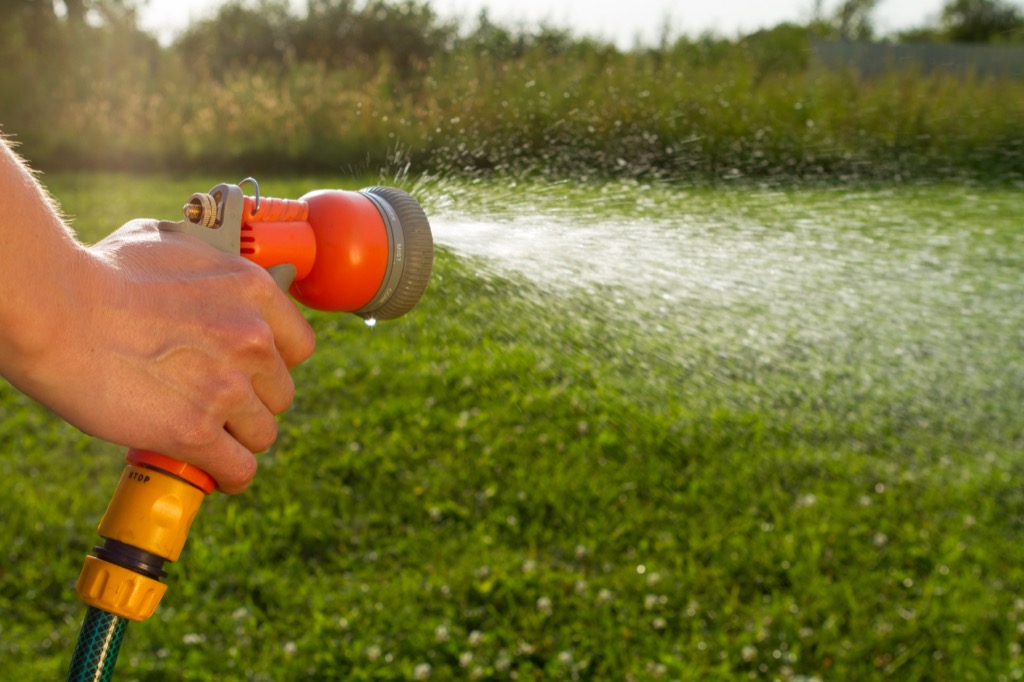
For a pest-free lawn, you need to get your watering schedule on point. Overwatering could attract pests that like moisture while underwatering could attract pests that like bare spots.
“As we head into summer, you should water your lawn every other morning if you’re not getting much rain,” says Josh Thompson, founder of Lawn Care Pro.
And make sure there’s no stagnant water anywhere. “Try to solve any drainage issues that your lawn is facing, such as low spots that are prone to developing wet patches, especially if you get a lot of rain where you live,” adds Thompson.
4. Use fertilizer.
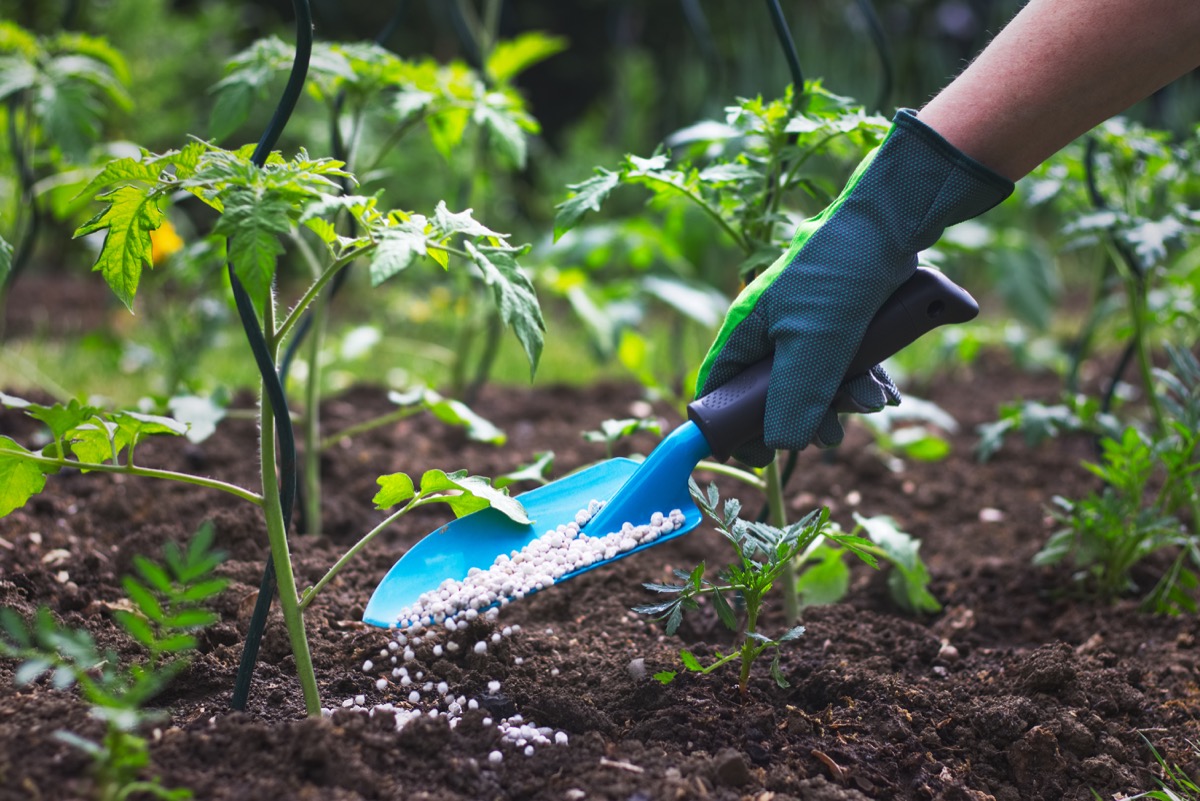
Fertilizer can also help keep your lawn happy, healthy, and free from pests. Thomspon suggests applying it at least twice a year. Or, you could mulch your grass clippings as you mow to ensure it gets the nutrients it needs. Again, this will help prevent bare spots that attract pests.
“The more sparse your grass, the more room there is for ants, grubs and crickets to nest or lay larvae,” says Thompson. If your lawn still has bare spots, “overseed these areas to protect your lawn from becoming infested,” he adds.
5. Keep it neat.
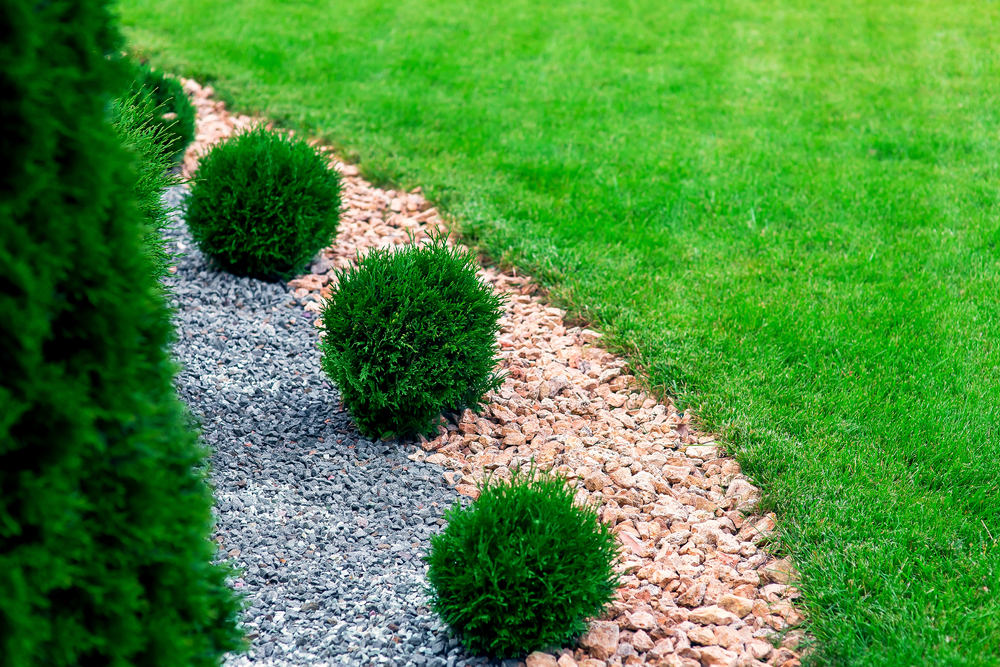
General neatness is also essential. “For example, standing water or moisture can attract mosquitoes, while piles of debris and compost can draw in insects like mites, roaches and ants,” says Lindsey Hyland, lawn expert and founder of Urban Organic Yield. “Also, areas of your lawn with dense foliage may harbor parasites like fleas and ticks.”
Clear clutter and mow and weed regularly, and you’ll notice fewer unwanted visitors.
For more home and garden advice delivered straight to your inbox, sign up for our daily newsletter.
6. Skip the insecticides.
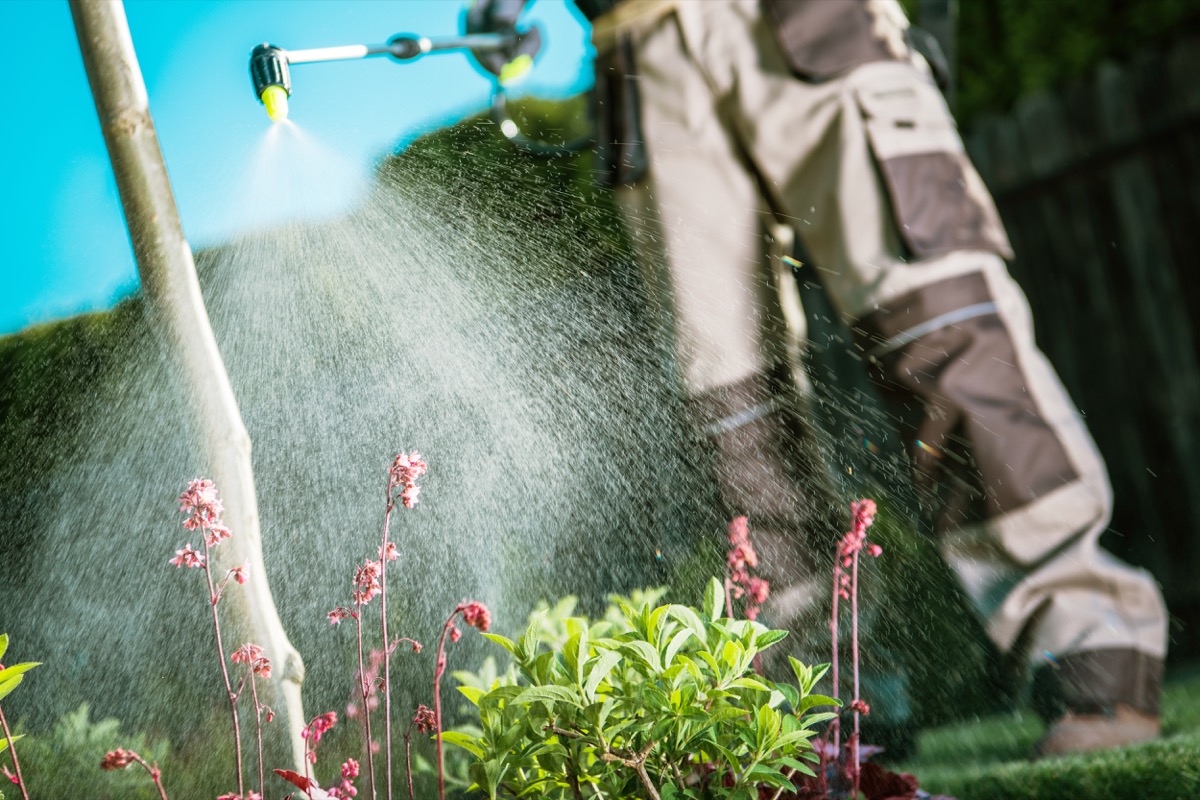
If you’re noticing more pests than usual, you might be tempted to pick up the insecticide. However, most experts suggest skipping it.
“We don’t typically recommend using insecticides or other chemicals as this will often do more damage to your lawn in the long run,” says Thompson. “You may kill off the pests using pesticides, but if you’re not careful, you’ll kill your grass too.”
Doing so can also lead to a dependence on chemicals to keep pests away, which is something you’ll want to avoid.